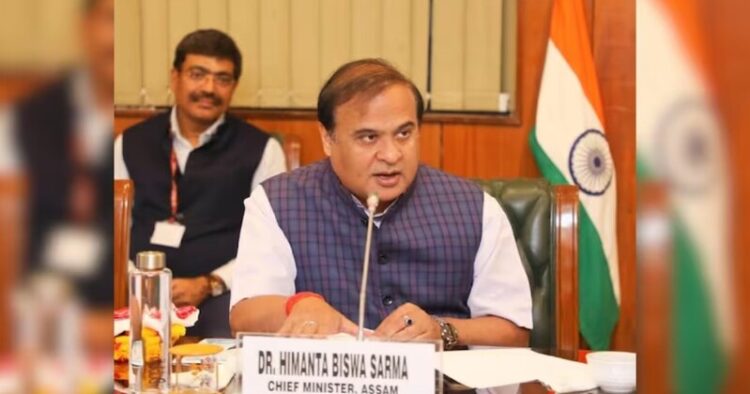Guwahati: Assam’s Chief Minister, Himanta Biswa Sarma, anticipates a minimum number of citizenship applications under the Citizenship Amendment Act (CAA) in the state. According to CM Sarma, the applicants, numbering between three to six lakhs, will primarily comprise individuals excluded from the updated National Register of Citizens (NRC).
In an interview with a local television channel, CM Sarma revealed that approximately seven lakh Muslims and five lakh Hindu-Bengalis were omitted from the NRC list. He explained that many Hindu-Bengalis, who had sought inclusion in the NRC, faced hurdles due to the rejection of stamped papers by the former NRC state coordinator, Prateek Hajela. Consequently, numerous Hindu-Bengalis found themselves excluded from the NRC.
CM Sarma emphasised that while some Hindu-Bengalis excluded from the NRC would apply for citizenship under the CAA, others would resort to legal avenues, necessitating tribunal interventions to clear their names.
Additionally, CM Sarma highlighted the inclusion of other marginalised groups among the excluded applicants, such as two lakh Assamese caste Hindus and around 1.5 lakh Gorkhas. He debunked claims made by protestors, asserting that there would not be an overwhelming number of applicants, as speculated, but rather a more modest figure within the estimated range.
The NRC process, aimed at identifying and excluding illegal immigrants, saw around 3.30 crore applications, out of which nearly 40 lakhs were excluded in the draft published in July 2018. Subsequently, approximately 36.28 lakh individuals applied for inclusion, with an additional two lakhs registering objections. The ensuing hearings incorporated provisions for obtaining biometric details.
The supplementary NRC list identified over 31.1 million eligible individuals for inclusion, while over 1.9 million were excluded. This exhaustive process, mandated by the Supreme Court, aimed to streamline citizenship verification.
The recent implementation of the Citizenship (Amendment) Act by the central government has further stirred the citizenship discourse. The Act, passed by Parliament four years ago, fast-tracks citizenship for undocumented non-Muslim migrants from Pakistan, Bangladesh, and Afghanistan, who arrived in India before December 31, 2014.
CM Sarma, during a visit to Karimganj, emphasised the political repercussions of the citizenship issue. He questioned the rationale behind voting for Congress candidates, suggesting that they might eventually switch allegiance to the BJP. Asserting his party’s dominance, CM Sarma confidently claimed that all candidates, except one from Congress, could be persuaded to join the BJP fold, predicting a resounding victory in Karimganj.
The opposition have tried to create the CAA implementation, a major election issue in Assam. In 2019 left influenced opposition leaders and even some Congress leaders claimed that 20 lakh to 1 crore people will enter Assam after CAA implementation. Those instigations led to a violent protest in Assam fueled by radical Islamist organisation PFI. Scores of government and public properties were vandalised during the anti CAA protest in 2019. But after the CAA implementation on March 11 Assam witnessed a minimum of protests this time. Even though opposition parties tried to organise anti CAA protests, they hardly saw any success.




















Comments